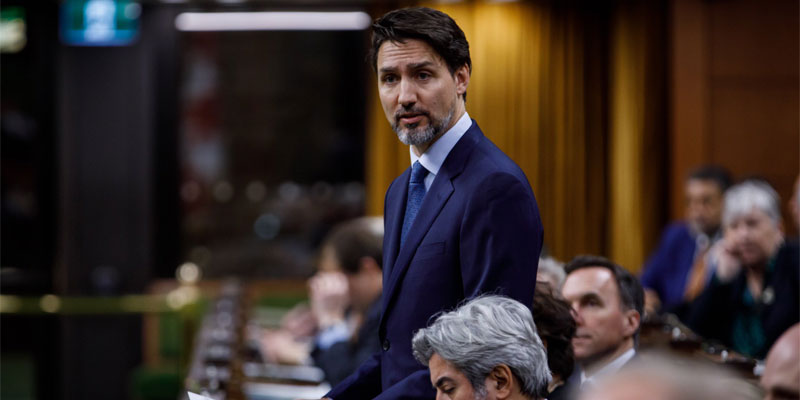Trudeau government must chart credible plan to balance federal budget

In the late stages of 2020, Prime Minister Trudeau committed to “absolutely” balance the federal budget—at some point in the future. Of course, a balanced budget would halt the debt accumulation that started well before COVID but has accelerated during the pandemic. However, the Trudeau government will not turn the ink from red to black if it again fails to develop and execute a credible fiscal plan.
Indeed, we’ve seen similar promises to balance the budget before. While campaigning during the 2015 election, then-candidate Trudeau pledged to run “modest” budget deficits for just “three years” before returning to balance at the end of his first term in 2019/20.
Instead, the Trudeau government churned out deficits that were much larger than expected and abandoned its goal of balancing the budget, despite a growing economy. As a consequence, the government racked up $104.3 billion in net debt during its first four years in office.
And now, COVID has made Ottawa’s debt problems even worse. Under the most optimistic circumstances, Finance Minister Chrystia Freeland expects the federal deficit will reach $381.6 billion in 2020/21 while our debt-to-GDP ratio (a key measure of fiscal sustainability) will rise from 31.2 per cent to 50.7 per cent. The latest projections also suggest at least another five years of budget deficits ranging from $25 billion to $121 billion.
Although these large numbers are difficult to fathom, they may actually underestimate the size of the deficits. Establishing new federal programs such as national childcare and universal pharmacare, reforming employment insurance and spending up to $100 billion over three years on stimulus will add to the deficits. At the same time, the Trudeau government will face waning tax revenue due to our aging population and the risk of rising interest rates.
Without a shift in policy, the federal government won’t balance the budget any time soon. In fact, a recent study estimates Canadians will have to wait until after 2050 to see another balanced budget. This will result in substantial debt accumulation and with billions more spent on government debt interest rather than key priorities such as health care or pro-growth tax relief. All else being equal, the more the federal government continues to borrow, the larger these debt interest costs will grow.
Clearly, balancing the federal budget is key to restoring Canada’s fiscal health. Failure to do so means we’ll be having this same discussion again when the next crisis hits, but fewer resources will be available to deal with the problem.
Finally, it should go without saying, we can’t just assume the budget will balance itself. The Trudeau government has already ditched this objective once before and its new ambiguous promise to balance the budget in due course is not enough.
Returning to balanced budgets post-COVID will require difficult decisions and discipline. But it’s not something we can afford to delay. The Trudeau government must develop a credible plan to balance the budget again in the near future. If it doesn’t, it may find that history—no matter how recent—has a strange way of repeating itself.
Author:
Subscribe to the Fraser Institute
Get the latest news from the Fraser Institute on the latest research studies, news and events.

